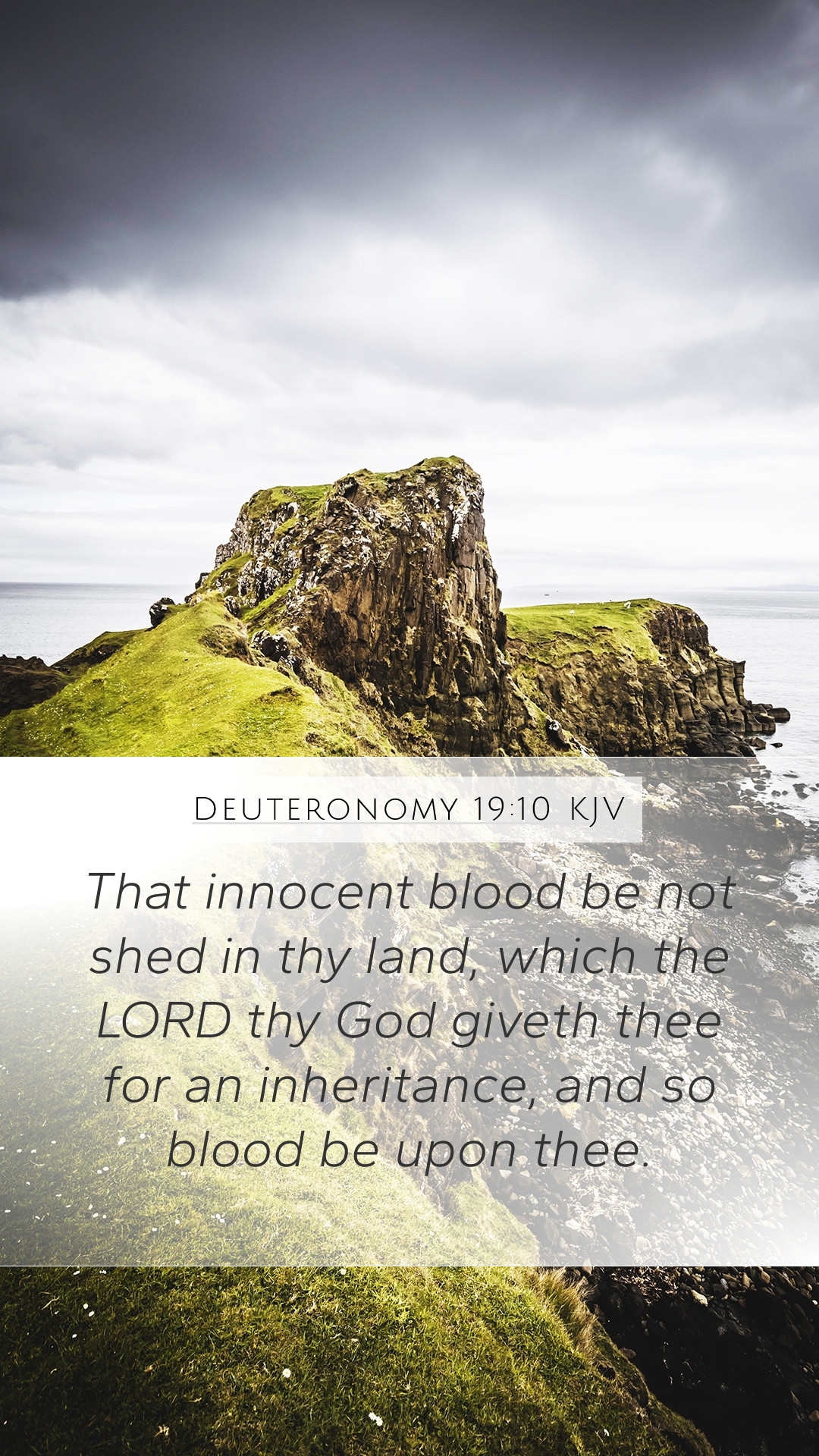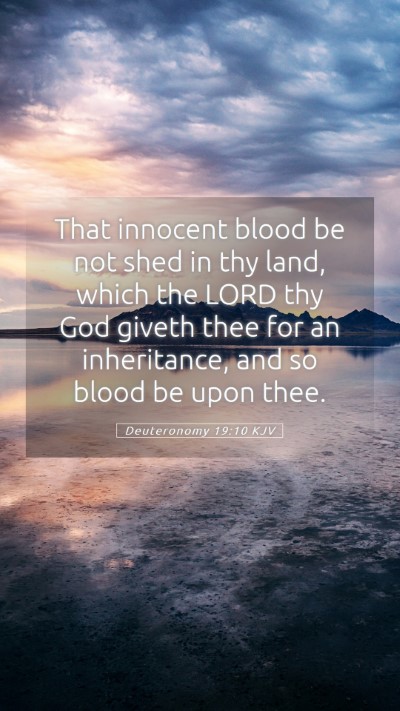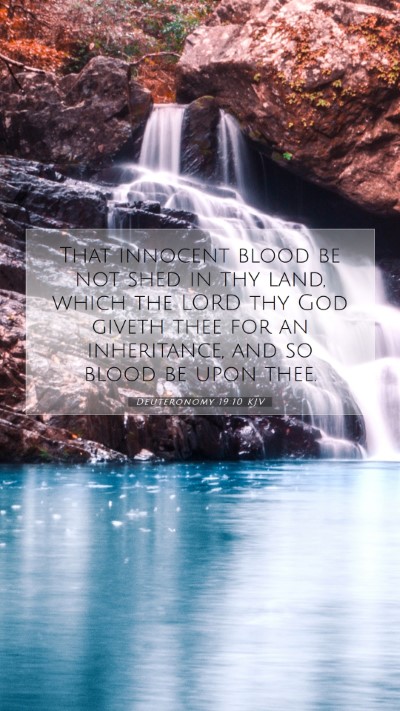Understanding Deuteronomy 19:10: A Comprehensive Bible Verse Commentary
Deuteronomy 19:10 states: "That innocent blood be not shed in thy land, which the LORD thy God giveth thee for an inheritance, and so blood be upon thee." This verse holds significant importance in the context of justice and the preservation of life within the land granted by God.
Overview of Deuteronomy 19:10
This verse emphasizes the prohibition against the shedding of innocent blood, stressing the moral and spiritual consequences of such actions. The surrounding context in Deuteronomy discusses the establishment of cities of refuge for those who commit unintentional manslaughter, highlighting the grace and mercy of God while also underscoring the seriousness of taking a life.
Key Themes and Interpretations
- Protection of Innocence: According to Matthew Henry, this verse serves as a reminder of God’s law that values and protects innocent life. It reflects the divine concern for justice and moral order in society.
- Divine Justice: Albert Barnes notes that the shedding of blood, particularly that of the innocent, provokes God’s judgment. Therefore, communities must be vigilant to uphold justice and righteousness.
- Moral Responsibility: Adam Clarke emphasizes the collective responsibility of the Israelites to ensure that justice prevails and that the land they possess remains free from bloodguilt.
Bible Verse Commentary
The primary message of this verse can be understood through various layers of biblical analysis. Following is a more in-depth examination:
1. Historical Context
In the historical context of ancient Israel, the concept of communal responsibility for violence was significant. It implies that a society must actively prevent wrongful deaths to remain in favor with God.
2. Spiritual Significance
Spiritually, the act of shedding innocent blood is seen as an abomination before God, reflecting the overarching theme of holiness in the Mosaic Law. God’s command to avoid such acts is protective not just for individuals but for the community as a whole.
3. Application to Daily Life
This verse invites believers today to examine their own lives and the lives of their communities. How does one contribute to or hinder the sanctity of life? It calls for reflection on justice, mercy, and the need to advocate for the innocent in both action and thought.
Related Bible Cross References
- Exodus 23:7: "Keep thee far from a false matter; and the innocent and righteous slay thou not: for I will not justify the wicked."
- Numbers 35:33-34: "So ye shall not pollute the land wherein ye are: for blood it defileth the land: and the land cannot be cleansed of the blood that is shed therein, but by the blood of him that shed it."
- Matthew 23:35: "That upon you may come all the righteous blood shed upon the earth, from the blood of righteous Abel unto the blood of Zacharias son of Barachias, whom ye slew between the temple and the altar."
Bible Study Insights
For those engaging in bible study groups or seeking online Bible study, this verse opens discussions on:
- The implications of personal and communal sin.
- The importance of justice in society.
- Understanding God’s commands in the light of mercy and protection for those wronged.
Conclusion
Deuteronomy 19:10 serves not just as a legal statute but as a profound commentary on the value of human life, the need for justice, and the moral responsibilities shared among God's people. As you seek to understand Scripture, may this verse encourage both a deeper Bible verse meaning and the application of biblical principles in your life.


